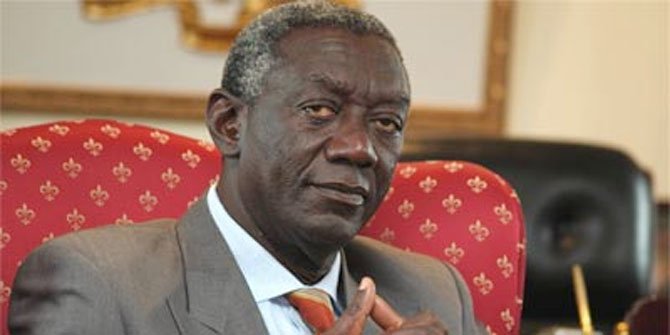Former President John Agyekum Kufuor has asked world leaders, especially, African governments to show serious political commitment towards addressing climate change issues and find ways to mitigate its impacts on their people
He said the inter-governmental Panel on Climate Change (IPCC), which seeks to assess the progress in understanding climate change, confirms that climate change is a manifestation of human impacts on the earth’s natural climate.
“Over the next decade, it is predicted that billions of people, particularly those in developing countries face shortages of water and food and greater risk to health and life as a result of climate change”.
Former President Kufuor said unless something was done in this mid-century, the world would be overwhelmed by the catastrophic effect of climate change.
Speaking at an international Climate Change Colloquium organized by the Trans-disciplinary Research Group on Climate Change and the Regional Institute on Population Studies (RIPS), University of Ghana (UG), in Accra on Friday, President Kufuor called on world leaders to take advantage of the many options and opportunities that exist in support of Climate Change adaptation.
The colloquium was on the theme: “Political Commitment towards 2015 Global Climate Change Agreement” and it was organized in honour of President Kufuor as one of the UN Special Envoys on Climate Change.
The former President said by his appointment as a UN Envoy, he together with Mr Jens Stoltenberg, former Prime Minister of Norway have been asked to assist in engaging Heads of States and governments around the world in order to mobilize political will and action for the 2015 summit on climate change.
He urged African governments to work to ensure the support and adaptation of its people, technological options, such as increased sea defences or flood –proof houses, to behaviour change at the individual level, such as reducing water and electricity use in times of drought, and using insecticide-treated mosquito nets.
He advised stakeholders to also mainstream climate change programmes, such as mitigation and adaptation into central government budgets to complement political will and cut emissions.
He said Ghana’s National Climate Change Policy must also address climate resilient and climate compatible economy, while achieving sustainable development and equitable low carbon growth for Ghana.
Professor John Owusu Gyapong, Pro Vice Chancellor, Research, Innovation and Development, UG, said as a university, they plan to take up research programmes and other engagements that would help in the design of polices and programmes to address social issues like Malaria, food security, and climate change.
Professor Samuel Nii Ardey Codjoe, Director RIPS, said the colloquium was made possible through the African Adaptation Research Centre (AARC) of Excellence Project resident at RIPS, with funding from the international Development Research Centre (IDRC) of Canada.
He said the Centre would be available to provide to President Kufuor, a technical back-stop on climate change negotiations for the UN Secretary General’s summit this September and in 2015 and beyond.
“The Centre will also make available to you and your team, technical negotiation materials to assist you to play your role effectively, and we seek to have special collaboration and partnership working relations with your office”.
Mr Philip Acquah, International Expert, National Greenhouse Gas Inventories and National Communications Review explained that climate change is a result of “the very activities of humans that add up to our GDPs- our economic activities”.
He said activities like manufacturing and other economic activities were major causes of greenhouse emissions that pollute the atmospheres and therefore the need to drive and sustain the projected ambitious emission reduction plan towards 2015 to achieve the stabilization of concentrations in the atmosphere.
Source: GNA


